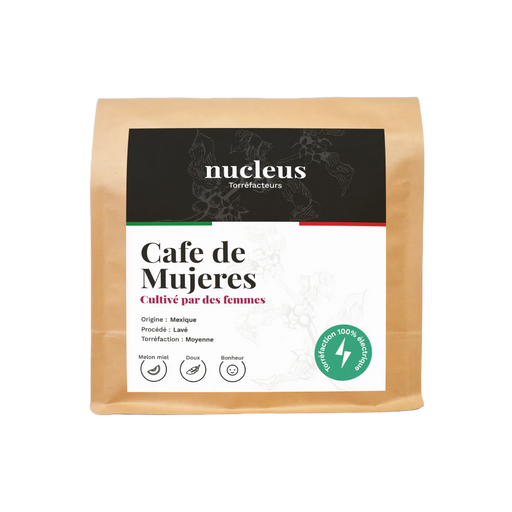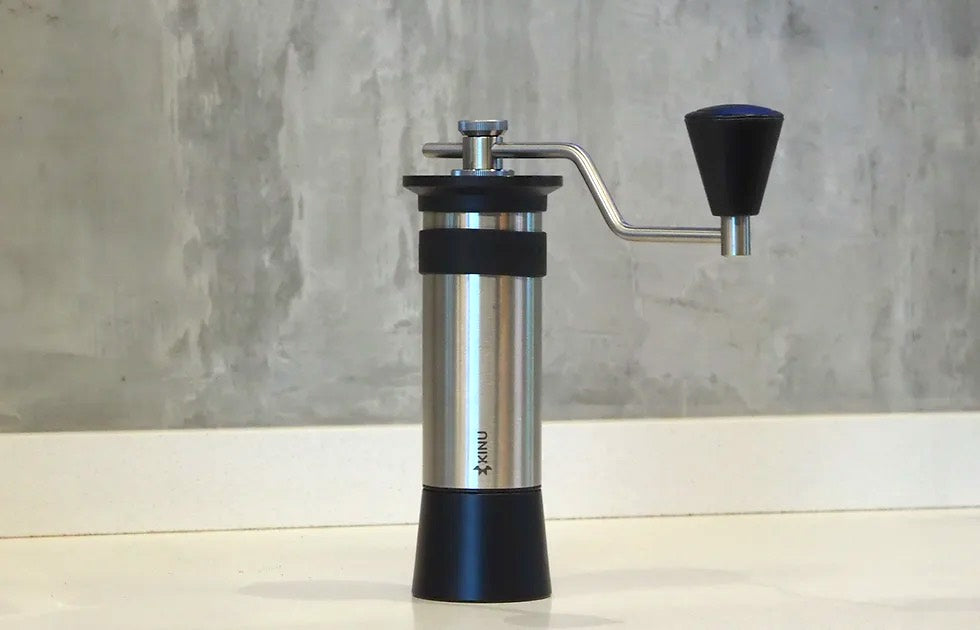Do you like coffee? If so, then you're probably familiar with the different waves of coffee. As one of the world's most popular beans, coffee has been through some note-worthy seasons. From the first coffee wave's commercialization, all the way to the third wave's sustainability and innovation, the mighty bean has really had its journey through time.
Over a century later, coffee culture is being infused with new ethical and quality standards. As people are beginning to realize the importance of ethically sourced products, sustainably produced beans are gaining traction as a key element of this third wave.
To understand how we got here, let's have a look at where it all started:

The First Wave of Coffee
Do you ever pondered how coffee transformed from a simple beverage to the beloved oat milk latte of today? The origins of this evolution can be traced back to the first coffee wave. This wave denotes the conventional method of producing and distributing coffee on a large scale, where less emphasis is placed on quality and sustainability. It commenced during the early 1900s when mass production techniques were introduced to cultivate and distribute coffee beans on a global level.
At this time, coffee was primarily consumed for its caffeine content. There certainly weren't any hipster coffee shops with a variety of ethically sourced beans with different flavor profiles. This continued until around the mid-1900s. During this time, coffee became more mass-produced and accessible to everyone. Today, this coffee can be found in many mainstream chains and grocery store brands. We're talking about Folgers, Maxwell House, and any other brand you can buy at a bargain pre-ground in a large tub.

The Second Wave of Coffee
As soon as it became evident that coffee had secured a permanent place in society, the industry began to prioritize enhancing the everyday coffee drinker's experience. The onset of the second coffee wave signified a movement committed to improving the quality and sourcing of coffee. This wave emerged in the latter half of the 1960s, following the first wave of mass-market commercialization. Around the same time, what is now commonly referred to as the second wave of coffee surfaced and persisted until the early 2000s.
This wave was all about the flavor and variety of coffee. People began to experiment with different brewing methods and flavors. This led to the development of specialty coffeehouses putting the emphasis on serving high-quality coffee. Second wave pioneers such as Starbucks helped popularize dark roast blends and brought attention to issues like fair trade practices. This is also around the time when coffee houses such as Starbucks started introducing sweet new coffee-based beverages onto the coffee scene, such as Frappuccinos and flavoured lattes.
In recent years, we have seen the emergence of the third wave coffee movement, which places even greater emphasis on quality, sustainability, and traceability from farm to cup.
What is the Third Wave Coffee Movement?
The third wave coffee movement emerged in the early 2000s and has continued to thrive until the present day. Its central tenet is sustainability and ethics, whereby the emphasis has shifted towards procuring coffee beans from small, independent farmers who receive fair compensation for their produce. Additionally, this movement has ushered in novel brewing techniques that highlight the inherent flavors of coffee.

What Sets Third Wave Coffee Apart?
If you consider yourself a coffee connoisseur, you may have heard about third wave coffee. Unlike the first and second coffee waves, third wave coffee places a greater emphasis on quality and sourcing. With third wave coffee, you can expect specialty beans that are ethically sourced and freshly roasted, resulting in a rich and flavorful cup of joe. In addition, coffee shops often offer unique brewing methods such as pour-overs and cold brews to bring out the best in each individual bean.
So why settle for those mass-produced blends found in traditional coffee shops when you can savor the true taste of third wave coffee? Whether it's ethically sourced or exotic single-origin beans, third wave coffee offers something for any discerning palate. Thanks to third wave coffee, you can now enjoy the fruity and earthy notes of your espresso just as you would with a fine glass of wine.
If you are looking to drink great coffees from new roasters every month, we have an ethical coffee subscription available!
Why is Third Wave Coffee Important?
Sustainability & Community Livelihood
The significance of third wave coffee lies in its ability to enhance the livelihoods of small-scale farmers and foster environmentally sustainable growing practices. By purchasing third wave coffee, consumers can rest assured that they are endorsing farmers who receive equitable remuneration for their coffee beans.
Consumers Play an Active Role
The significance of the impact is rooted in its ability to generate consumer involvement with coffee. In contrast to regarding it as a mere commodity or stimulant, coffee aficionados are beginning to recognize the influence of production practices on not just the flavor, but also on the environment and communities worldwide.
Thinking Globally
We are being asked more than ever before to consume mindfully for the future of our planet and our collective well-being, and third-wave coffee supports that mission.

Key Features of Third Wave Coffee:
· sustainably and ethically sourced
· small batch roasting
· complexity of natural flavors
· individual connection to the coffee growing process
· greater traceability
· lighter roasted coffees
Third Wave Coffee vs Specialty Coffee: What's the Difference?
The third wave coffee movement is often confused with the specialty coffee movement. While both movements are focused on quality, there are some key differences.
· Specialty coffee is all about the beans. The focus is on sourcing high-quality beans and ensuring that they are roasted to perfection. However, this doesn't ensure the integrity of the production process.
· Third wave coffee is also focused on the beans, but the emphasis is on sustainability and ethics. This means that coffee growers are focused on producing high-quality coffee that is ethically and sustainably sourced.
FAQs
What are the 3 waves of coffee?
The first wave of coffee was all about getting that caffeine fix through industrialization. The second wave was all about the flavor and variety of coffee, and the third wave is all about sustainability, ethics, and the coffee experience.
What is the 4th wave of coffee?
In the fourth wave, technology and ethical production methods are used to take coffee experiences to the next level. In a way, this is a result of third wave coffee being adopted on a global scale. Big coffee companies are now investing in the third wave's mindful and artisanal approach to make sustainable craft coffee the new norm.
What's so great about 3rd wave coffee?
Third wave coffee offers consumers a higher quality product while also improving the lives of farmers and their communities. This plays a huge role in shifting the perception of coffee as a commodity to an artisanal beverage that requires incredible effort and skill to produce.
Which wave of coffee is Starbucks?
Starbucks continues to be a second wave coffee company. In recent years, they have begun to experiment with new coffee methods and offerings, but they are still mostly known for their traditional coffee products.
Is Starbucks considered specialty coffee?
No, Starbucks is not considered a specialty coffee. While they did help to pioneer the specialty coffee movement, their emphasis has always been on mass production and convenience.












Comments
There are no comments.
Your comment